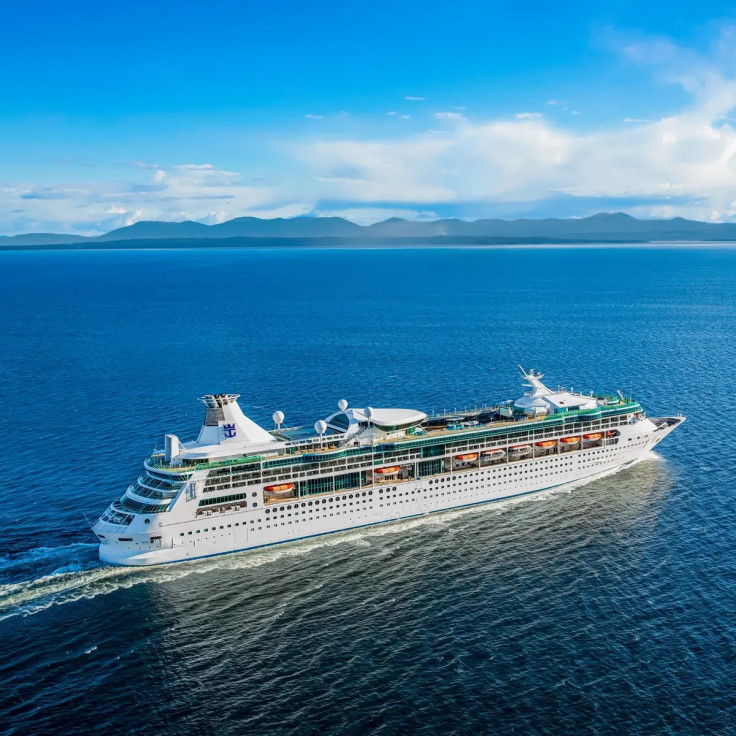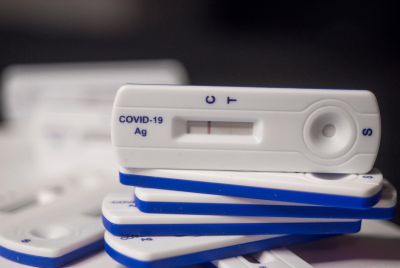Royal Caribbean Illness Cases Rise — How Norovirus Spreads and How to Stay Safe
Rising norovirus cases on Royal Caribbean cruises: causes, symptoms, and safety tips for travelers

Royal Caribbean has confirmed a new norovirus outbreak after more than 90 passengers and crew on the 'Serenade of the Seas' reported gastrointestinal symptoms during a 13-night cruise from San Diego to Miami.
The outbreak, logged by the US Centres for Disease Control and Prevention (CDC) on 28 September 2025, affected 94 of 1,874 passengers (5%) and four of 883 crew members (0.5%) reported symptoms including vomiting and diarrhoea.
The causative agent was confirmed as norovirus, a highly contagious virus that spreads rapidly in enclosed environments, such as cruise ships. With 19 cruise-related outbreaks already recorded this year, 2025 has surpassed the total reported in all of 2024.
What Is Norovirus?

Norovirus is a leading cause of acute gastroenteritis worldwide. It spreads through contaminated food, water, surfaces, or direct contact with infected individuals.
Symptoms typically include nausea, vomiting, diarrhoea, stomach cramps and, occasionally, fever. While most cases resolve within 48 to 72 hours, the virus can be hazardous for the elderly, young children and immunocompromised individuals.
The CDC defines a gastrointestinal illness outbreak on a cruise ship as affecting more than 5% of passengers or crew. The 'Serenade of the Seas' incident marks the 19th such outbreak in 2025, already surpassing the 18 reported in all of 2024.
Royal Caribbean's Response

In a statement to TODAY, Royal Caribbean said the health and safety of guests and staff remain its top priority. The cruise line has implemented enhanced sanitation, including:
- Isolation of ill passengers and crew
- Onboard disinfection exceeding public health guidelines
- Stool sample testing in coordination with the CDC's Vessel Sanitation Programme.
'To maintain an environment that supports the highest levels of health and safety onboard our ships, we implement rigorous cleaning procedures, many of which far exceed public health guidelines,' the spokesperson said.
Why Cruise Ships Are Vulnerable
Cruise ships are particularly susceptible to norovirus outbreaks due to their enclosed spaces, shared dining areas and high passenger turnover. Even with strict hygiene protocols, the virus can spread quickly once onboard.
The CDC notes that early detection and reporting are crucial to limiting the transmission of the disease. Passengers experiencing symptoms are encouraged to notify onboard medical staff immediately.
The 'Serenade of the Seas ' outbreak follows a similar incident in July 2025, when over 140 passengers aboard the 'Navigator of the Seas' fell ill with norovirus. That outbreak also prompted a full-scale sanitation response and raised questions about the effectiveness of current prevention measures.
How to Stay Safe on Your Cruise
While norovirus outbreaks are unsettling, there are steps passengers can take to protect themselves:
- Wash your hands frequently with soap and water, especially before eating and after using the toilet.
- Avoid buffet-style dining if possible, as shared utensils and surfaces can harbour the virus.
- Use hand sanitiser, though it is less effective than soap against norovirus.
- Report symptoms early to onboard medical staff to help contain potential outbreaks.
- Stay hydrated and rest if symptoms develop; seek medical attention if they worsen.
The CDC also advises travellers to check a ship's sanitation record before booking. Cruise lines are required to report illness data, and inspection scores are publicly available via the CDC's Vessel Sanitation Programme.
Looking Ahead
As cruise travel rebounds post-pandemic, public health experts warn that vigilance is essential. The rise in norovirus cases aboard Royal Caribbean ships underscores the need for robust sanitation protocols and passenger awareness.
With 2025 already surpassing last year's outbreak count, cruise lines may face increased pressure to improve transparency and onboard health measures.
For travellers, understanding how norovirus spreads and taking simple precautions may be the difference between a smooth holiday and a trip derailed by illness.
© Copyright IBTimes 2025. All rights reserved.





















